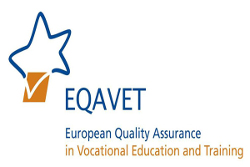 The European Quality Assurance Reference Framework (Reference Framework) is designed to promote better vocational education and training by providing authorities with common tools for the management of quality.
The European Quality Assurance Reference Framework (Reference Framework) is designed to promote better vocational education and training by providing authorities with common tools for the management of quality.
The Reference Framework forms part of a series of European initiatives which aim is to recognize qualifications and competences received by learners across different countries or learning environments, thereby promoting modernization, mutual trust and mobility in vocational education and training (VET). The adoption and implementation of the Framework in the participating countries is voluntary.
EQAVET is a community of practice bringing together Member States, Social Partners and the European Commission to promote European collaboration in developing and improving quality assurance in VET by using the European Quality Assurance Reference Framework.
EQAVET Indicators:
1. Relevance of quality assurance systems for VET providers
2. Investment in training of teachers and trainers
3. Participation rate in VET programmes
4. Completion rate in VET programmes
5. Placement rate in VET programmes
6. Utilisation of acquired skills at the workplace
7. Unemployment rate
8. Prevalence of vulnerable groups
9. Mechanisms to identify training needs in the labour market
10. Schemes used to promote better access to VET
The European Quality Assurance Reference Framework (EQAVET) is a reference instrument designed to help EU countries promote and monitor the continuous improvement of their vocational education and training systems on the basis of commonly agreed references. The framework should not only contribute to quality improvement in VET but also, by building mutual trust between the VET systems, make it easier for a country to accept and recognise the skills and competencies acquired by learners in different countries and learning environments.
- EU countries use the framework to improve their quality assurance systems in a way that involves all relevant stakeholders. This includes:
setting up national reference points for quality assurance; - actively participating in the relevant European-level network;
- developing a national approach aimed at improving quality assurance systems and making the best possible use of the framework.
EQAVET is a voluntary system to be used by public authorities and other bodies involved in quality assurance.

